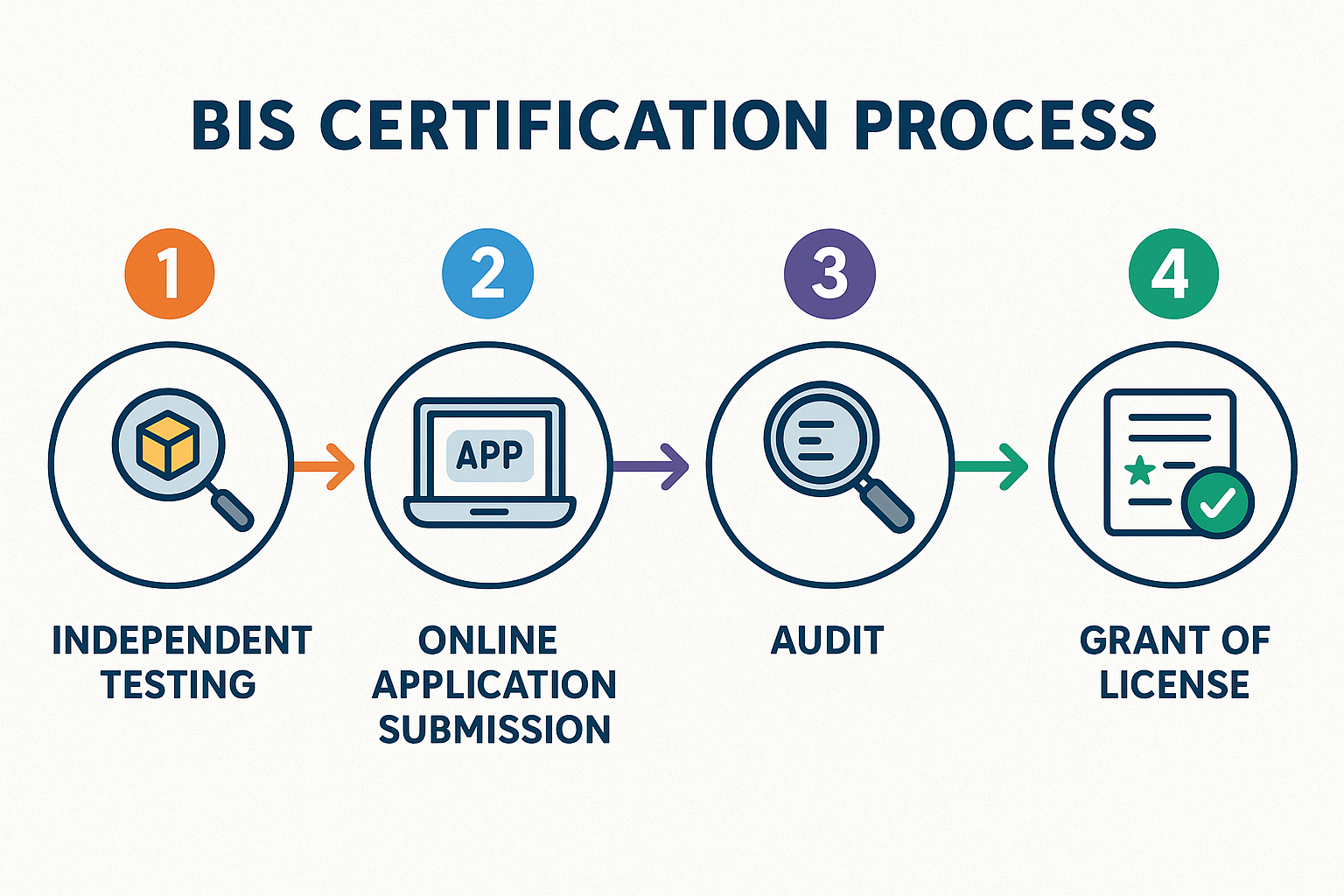Welcome to Standphill India
- CALL US: +91-9667674225
- Mail US : info@standphillindia.in
- Laxmi Nagar New Delhi

Table of contents
BIS Certification for Electric Kettles and Jugs – IS 367:1993
In today’s fast-paced lifestyle, electric kettles and jugs have become essential household and commercial appliances. Whether it is for making tea, coffee, or simply heating water, these devices are widely used across homes, offices, and food outlets. With increasing demand, ensuring product safety and quality becomes critical. This is where the Bureau of Indian Standards (BIS) Certification plays an important role.
For electric kettles and jugs, the applicable Indian Standard is IS 367:1993 – Specification for Kettles (Electric) and Jugs (Electric). Any manufacturer who wishes to sell these appliances in the Indian market must obtain BIS certification to comply with statutory requirements and to build consumer trust.
Uses of Electric Kettles and Jugs
Electric kettles and jugs are versatile appliances designed for convenience, speed, and energy efficiency. Some of their common uses include:
1. ) Preparing Beverages – Quick boiling of water for tea, coffee, green tea, or instant drinks.
2. ) Cooking Assistance – Helpful in preparing ready-to-eat noodles, soups, oats, and other instant meals.
3. ) Office & Workplace Use – Provides employees with an easy way to make hot drinks or instant snacks without a full kitchen setup.
4. ) Food Service & Hotels – Widely used in hotels, restaurants, and guest rooms to provide guests with hot water facilities.
5. ) Health & Daily Care – Used for boiling water for baby formula, warm water therapy, or hygienic drinking water.
What is IS 367:1993?
IS 367:1993 lays down the safety, quality, and performance requirements for electric kettles and jugs. The standard specifies:
1. ) Design requirements such as material safety, insulation, handles, and spouts.
2. ) Electrical safety parameters including insulation resistance, earthing provisions, and leakage current limits.
3. ) Performance tests for durability, temperature control, and energy efficiency.
4. ) Marking and labeling guidelines to ensure that products provide correct information to consumers.
This standard ensures that kettles and jugs are safe for daily use, prevent electrical hazards, and offer reliable performance.
Why BIS Certification is Mandatory for Electric Kettles and Jugs?
According to the BIS Act, 2016, several electrical appliances including electric kettles and jugs are under the Compulsory Registration Scheme (CRS). This means manufacturers cannot legally sell or distribute these products in India without BIS certification.
Key reasons for mandatory BIS certification include:
1. ) Consumer Safety – Prevents risks of electric shocks, overheating, or fire accidents.
2. ) Quality Assurance – Ensures that consumers receive reliable and durable products.
3. ) Legal Compliance – Protects manufacturers from penalties or product recalls.
4. ) Market Access – Only BIS-certified products are allowed to be sold in India.
5. ) Brand Credibility – Certification enhances consumer trust and brand reputation.
Process of Obtaining BIS Certification for Electric Kettles and Jugs
Manufacturers, whether domestic or foreign, must go through the following steps to obtain BIS certification:
1. ) Application Submission – File an application with BIS in the prescribed format.
2. ) Product Testing – Samples of the product must be tested in a BIS-recognized laboratory as per IS 367:1993 requirements.
3. ) Factory Inspection – BIS officials may conduct inspections at the manufacturing site to verify production processes and quality controls.
4. ) Evaluation of Results – Test reports and inspection findings are reviewed by BIS authorities.
5. ) Grant of License – Upon successful verification, BIS issues a certification license, allowing the manufacturer to use the ISI Mark on the product.
For foreign manufacturers, certification is obtained under the Foreign Manufacturers Certification Scheme (FMCS), where an authorized Indian representative must be appointed.

Role of Standphill India in BIS Certification
Navigating the BIS certification process can often be complex and time-consuming, especially for manufacturers unfamiliar with Indian compliance norms. This is where Standphill India provides expert assistance.
We offer end-to-end consultancy for BIS certification of electric kettles and jugs, including:
1. ) Guidance on documentation and application filing.
2. ) Coordination with BIS-recognized labs for testing.
3. ) Assistance in arranging factory inspections.
4. ) Ensuring timely approvals and renewals.
5. ) Providing legal and technical support throughout the process.
With years of expertise, Standphill India has helped numerous domestic and international manufacturers obtain BIS certification smoothly and efficiently.
Conclusion
For manufacturers of electric kettles and jugs, obtaining BIS certification under IS 367:1993 is not just a legal requirement but also a commitment to safety and quality. Certified products earn consumer confidence, reduce risks, and strengthen brand value in the competitive Indian market.
At Standphill India, we simplify the certification journey with professional guidance, making compliance seamless and hassle-free. If you are planning to manufacture, import, or sell electric kettles and jugs in India, our team is here to support you every step of the way.
Get in touch with Standphill India today and ensure your products meet the highest standards of safety and quality!
For More Blogs Click Here
- BIS Certification for Dishwashers
- BIS Certification for Low Speed Food Grinding Machines
- BIS Certification for Single Walled Baking Ovens
- BIS Certification for Electric Hot Plates
- BIS Certification for Slicing Machines
- BIS Certification for Electric Sieving Machines
- BIS Certification for Electric Shredders
Our Frequently Asked Questions
Request a call back.
For Business: For Business inquiry fill our short feedback form or you can also send us an email and we’ll get in touch shortly, or Toll Free Number +91 85279 30453.
Office Hours : 09:00 and 20:00 Mon to Sat, Sun - Closed
